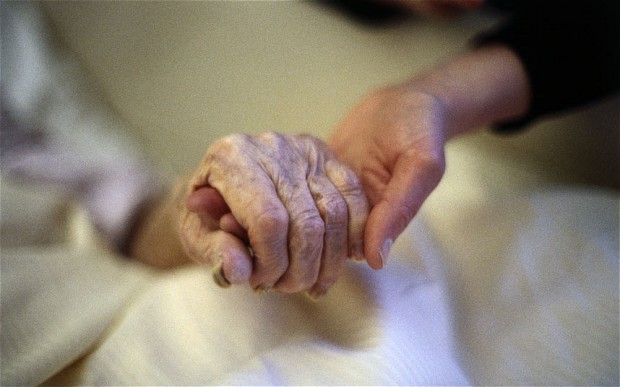Colorado voters approved a measure on the November ballot today that will make Colorado the next state to legalize assisted suicide targeting the disabled and elderly. The ballot proposal comes after the state legislature defeated bills to legalize assisted suicide.
Leading pro-life, disability rights, religious and medical groups publicly opposed the ballot measure. California, Oregon, Washington, and Vermont are the only four states to have legalized assisted suicide.
The euthanasia group Compassion and Choices financed the yes campaign and its state group Yes on Colorado End-of-Life Options spent $2.9 million to reserve TV ad time, campaign finance records show. It also paid a national company another $344,000 to help gather signatures.
“It’s a sad day for Colorado,” said Carrie Ann Lucas of Windsor. She suffers from a progressive neuromuscular disease and uses a ventilator to breathe.
She said the proposal does not require doctors to oversee patients as they take the lethal drugs – a concern, if the dose is taken incorrectly. And the measure does not make psychological evaluations mandatory for everyone seeking the lethal drugs, she said.
“It’s incredibly broad, and there’s inadequate safeguards to protect Coloradans from abuse and mistakes and coercion,” Lucas said.
When the Colorado legislature considered the measure, many medical doctors and religious organizations, however, opposed each proposed bill and questioned the lack of safeguards. Lucas said the ballot measure suffered from those same problems.
“None of those concerns are addressed, even in this proposal,” Lucas said.
Leading physicians said the bill the Colorado legislature rejected would have the medical profession turning its back on the most vulnerable patients.
“What this bill asks me as a physician is to look at my patients with sympathy rather than empathy,” said Dr. Robert Jotte, an oncologist at Rocky Mountain Cancer Centers. “We can’t as a medical profession give up on these patients.”
Another speaker, an attorney opposed the bill as well:
Probate attorney Skip Morgan opposed the bill, drawing from his experience in estate law.
“I am gravely concerned about this proposed act,” Morgan told the committee. “My years of experience tell me that the safeguards … are unenforceable.
“The requirement for two witness to witness the actual execution by the patient makes no intonation that those two have any idea of this patient,” Morgan. In some estate cases, he said, attorneys used random members of their staff to act as witnesses.
One of the witnesses to a patient’s assisted suicide would be allowed to be an heir under the House bill, Morgan said, which could involve “somebody with a claim, someone who may benefit from their death.”
“There is no requirement to witness the administrations of medication. There’s no requirement that this actually be documented.”
Morgan said that insurance companies could abuse the bill, as “the least expensive treatment is to put that patient to death.”
Rep. Paul Lundeen, a Republican, asked if the bill could promote elder abuse.“Yes, I have seen that … in a number of the proceedings,” Morgan said. “I have seen a very subtle pressure put on these people. They see themselves as a burden. ‘Mom, I love you to death, but how much longer do you want to go on?’”
Margaret Dore, an attorney in Washington state, opposed the bill, which is similar to Washington’s Death With Dignity Act.
“The law is deceptively written,” Dore said. “The term ‘aid in dying’ makes you trust this is for the dying. There’s no requirement that people be dying. The bill is sold as choice and control. It’s stacked against the person.”
Dore said the medication typically used is water-soluble, and could be “given to a patient without their consent.”
She said she’d had a client whose father was given the medication, and decided not to take it when he brought it home, but took it later when he was intoxicated.
“They’re sitting ducks,” Dore said.








